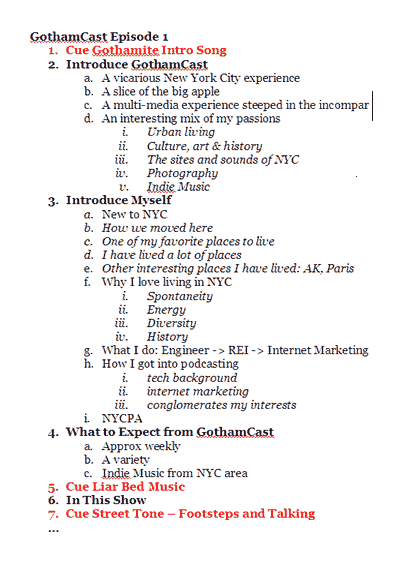Want to know how to host a podcast? You’re in the right place. Every podcaster wants to believe they’re a great host, but it takes a truly wise podcaster to know when those hosting skills need polishing.
See, listeners make connections with podcasts almost entirely because of their hosts. After all, it’s not like WTF with Marc Maron could be hosted by the same lady who records your grandma’s quilting podcast. Hosts make podcasts great, and they can also make them unbearable.
You don’t want listeners bored, annoyed, or too uninterested to even finish your episodes—which will certainly happen if you’re a subpar host of a mediocre podcast.
Relax, you’re probably not that bad. However, in an effort to help you understand how to host a podcast, today we’re going to share our favorite tips and tricks you can use to improve your craft, appeal to listeners, and let your guests shine.
How to Host a Podcast in 6 Steps
Ready to learn how to host a podcast? Follow these six key steps.
1. Do Your Homework
If you want to know how to host a podcast, this is the most important tip. You just can’t host a great episode without a decent amount of preparation.
Properly outline the talking points and themes for your episodes so they stay on track and have a cohesive feel. Never just “wing it” and hope to carve out a show during editing.
Don’t waste your audience’s time meandering around an idea—have a plan and follow through. Research everything about that topic so you can speak from a well-researched point-of-view and provoke interest in your listeners.
Great podcast hosts know how to progress their episodes and keep their listeners engaged like great storytellers.
You never want to sound foolish, especially when you’re talking to a podcast guest, so never walk into recording unprepared. Read about what they’re known for, skim through their biography, check their most recent social media posts, etc.
And most importantly: Prepare some notes! If you have a guest, prepare plenty of questions. You don’t need a complete script, but an outline with talking points will help. Here’s a basic example:

This time spent preparing will never, ever be wasted.
2. Minimize the Awkward Robot Talk
Listeners tune in because they think you’re an authority in a niche they’re interested in. They want the information delivered in an easy-to-understand, conversational tone.
In other words, skip the complicated jargon and speak as if you were chatting with your best friend.
Equally important is being comfortable and true to yourself. One reason podcasters skip detailed outlines for their episodes is because they don’t want to feel chained to a script.
It’s true, listeners don’t want to hear you reading off your outline or quickly itemizing your talking points. Your audience wants to hear an engaging conversation, not a lecture they’re probably going to tune out.
It’s easy to become entranced with an intelligent guest and find yourself muttering one syllable responses such as “yeah”, “right”, and “wow” during the whole segment. Don’t do this. You never want listeners to think you’re a soundbite response. You’re a human, not a robot, right?
3. Let Your Guest Shine
When our customers ask us how to host a podcast, they’re almost always asking about the quintessential hosting task: the interview.
Listeners enjoy hearing smart, funny, or in-the-know people discuss thought-provoking topics and ideas. But there’s no way for your guest to shine and impart their wisdom on your audience if you don’t give them the opportunity.
It can be hard for a host to let go of the microphone, figuratively speaking, but you’ll need to step out of the limelight and work your magic behind the scenes. Think of yourself as the all-powerful Oz behind the curtain if that helps your ego.
During your research stage, plan a loose map of where you want to take the conversation with your guest. Guide your guest towards questions you (and your audience) have about their work, life story, beliefs etc.
Don’t force the conversation to flow exactly as you outlined it—keep it natural and let it meander where it will. Gently reign it back in when you get off topic, but do so without ruining the natural flow.
When you ask your guests questions, let them thoroughly reply with an answer. Don’t cut them off to reiterate what they’re saying or move on to another question as if you’re hosting a spelling bee. Keep the conversation and the details flowing and then move on.
Stay away from yes/no questions that halt conversation. Strive for forward momentum and you’ll always have an interesting exchange. Create a list of open-ended questions that lead to further discussion. Questions such as:
- What do you think/feel about…
- Why should people care about…
- Give me an example of…
- How do you explain…
- What lead you to…
Here’s what you can do for your guest before they’re on your show:
Ask your guest if there’s anything they specifically want to talk about/promote so you can research questions in this realm.
Give your guest an understanding of your target listener and guide them towards what your audience wants to hear about to ensure they connect immediately.
Remember, you know your listener, but they may be a totally new audience for your guest to explore. Catch everyone up as if you invited one of your new friends to a party with your old friends. You know your guests are going to love each other, you just need to make sure they talk about their shared interests and connect.
4. Work in Sponsors with Ease and Humility
We all know why commercials exist even though we can pretty much all agree that we hate them.
Unfortunately, you need to keep the lights on at your podcast HQ so sponsors are the fish you’re chasing. Just don’t punish your listeners for this.
Listeners respond better to live-read ads during shows than pre-recorded ones. Not only will you sound like you’re giving a recommendation rather than plugging a company, your listeners will feel as if you’re more genuine and not just “selling out.” Research from the IAB Podcast Study confirms this.

Try to keep the product copy sounding like you—don’t make it stiff or stuffy, keep it light and try to connect with your audience as if you were recommending, not selling, something to them.
Step 5: Ask for Feedback
Most listeners are never going to tell you that you’re an awful podcast host. They’ll just stop downloading your episodes. The only way to really learn how to a host a podcast, therefore, is to solicit feedback from your listeners.
Save for a few internet trolls who may be especially hard on you in the beginning (even more so if you’re in a difficult niche), most people actually want you to succeed.
Start with specific questions at the end of your podcast and on your social media accounts about your show. Try to make them humorous and listeners will be more likely to respond, like in this example:
“Testing out a new mic, how does my voice sound? Can you hear my nose whistle?”
You’ll receive honest feedback which you can take or leave. The opportunity exists for you to truly give your audience what they want, even if you need to ask them what that is first.
When you work out all the kinks, you’ll be stacking up positive reviews, which will encourage new listeners to download an episode and check your podcast out.
You can also send out surveys to your email list asking about how they’re liking different aspects of your podcast, website, content, show notes, social media posts, etc.
Give them an incentive to complete a (very) short survey, such as entrance in a drawing for a prize anyone in your audience would envy or a discount for your course or ebook.
6. Don’t Forget to Thank Your Listeners
Our final piece of advice on how to host a podcast is hard to quantify, but still important. Download numbers, social media followers, brand ambassadors—these are all listeners and fans of your show. You wouldn’t have any success without a loyal audience.
So don’t ever take them for granted.
Host giveaways and contests, interact on social media when fans message or tweet you, and just be cool. You’re in the podcast game for them, right?
All it takes to be a great podcast host is a little charm to make conversations easy and interesting, a few minutes of research to exchange ideas intelligently, and the humility to ask for criticism in the name of self-improvement.
Action
Read to start your own podcast? Learn the nitty-gritty details of starting your own show in our comprehensive guide. Learn how to start a podcast.
Wrapping up How to Host a Podcast
Well, those are the basics at least. Your personality and content will win over fans. If you want to host your own podcast, you just have to dive in and start practicing. You’ll grow more comfortable over time. Once you master these abilities, it should come as no surprise when your download numbers soar.




Thanks for this write-up. Very informative.